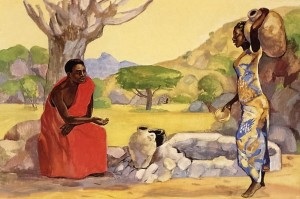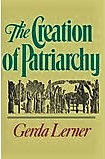Rev. Cathy Kaminski is lead pastor of Trinity Community Church in Cincinnati, OH. Cathy is neither political or apathetic. She thinks it’s vital to life and health to acknowledge the reality of the world and figure out where you stand. She tries to choose solidarity rather than division.
When I first heard Hillary Clinton’s campaign motto I was struck by the sheer brilliance of it. “I’m with her.” It’s a simple statement. A common phrase in today’s vernacular. But also a concept so much greater than ideology or view point. This motto is a declaration of solidarity. And there is great power in being in it together.
Whatever your political prowess there is much to learn from this election. I’m not talking about leaning to the right or the left. There has been ugliness in this season that has highlighted the worst of humanity. Yet I believe there have been and still remain opportunities for greatness. How? But finding the humanity in the chaos. By seeing the opportunities before us in this tumultuous time and navigating through side by side.
I’m hoping that we can all agree that this particular election has become heated, at times polarizing and on more than one occasion hits below the belt. Why is this offensive? Because politics should be about politics. It should be about electing a representative for our nation that can lead us…it shouldn’t be about bank accounts, emails or least of all gender.
But throughout this election there were moments when it was about gender. And every time my heart broke a little. Why? Because when the election becomes about gender instead of experience/beliefs/character/capacity/leadership we paint with such a broad stroke it tends to belittle, stereotype and diminish the conversation. We can do this in the church as well and it tears me up every time. When we narrow our eyes to see only gender we miss out on the extravagance of God’s grace. With our eyes fixed on one point, one position, one perspective we can fail to see just how many gifts God showers on the Church through a vast variety of people.
One of the goals of the Covenant’s Biblical Gender Equality Commission is to carry the conversation of women in ministry forward. I am fully aware that this is a point of contention for people. Individuals and families have left the church over being for or against this understanding of scripture. But do we have to be so polarized in our differences? Do we have to get heated and take humanity out of the equation? When we make this conversation so specifically about gender that we forget our sisters, mothers, daughters and friends who are obediently trying to be faithful to God’s call we tear them down. Even if it’s not our view point we don’t have to add to the ugliness. We have an opportunity to stand with those we agree with and with those we don’t.
“I’m with her,” is not necessarily a statement of absolute agreement. Or at least I want to argue it doesn’t have to be. In this year’s election the Clinton campaign is using it as such, but it dares me to dream for more. “I’m with her” is a statement of solidarity. It’s a declaration of support. And support does not have to be agreement, but respect and encouragement. Think about it this way: in my life I have encountered many people who believe in women in ministry and those who do not. Some of those people supported me and others challenged me. The thing is their scriptural understanding did not necessarily dictate their support. Some of my biggest supporters and advocates did not believe in women in ministry. But they believed in me. They stood beside me when others persecuted. They proclaimed, “I’m with her” when others questioned me. Their solidarity empowered me when their criticism could have torn me down.
If women in ministry is an issue for you, if you are wrestling through the history of the church, biblical interpretation, tradition and practice: great. Wrestle. Question, seek God, pray, study and find conviction. But don’t tear down others whose understanding and conviction differs. Don’t be a part of the worst humanity embodies, but the best. Say “I’m with her.” Not because you agree or disagree but because she is a person and as such, precious. Because she has been given the Imago Dei, (she is an image bearer of God). Christ died for her and loves her, so stand with her!
Our culture praises the individual who can stand on her own two feet. But why stand alone or push someone to stand alone? There is such power, influence and even resilience in standing together. Why not stand together? Whatever your conscience and whatever your vote this election season, I challenge you to embody the sentiment of “I’m with her.” Choose solidarity over division. Choose humanity over all else.




 It is all very scandalous really…she is a ridiculed woman and left out of her community. She, a Samaritan of not “pure” bloodline speaks with a Jewish rabbi alone. And Jesus and this woman converse, she gives him water and he gifts her with the knowledge of his gift of grace and life…of living water.
It is all very scandalous really…she is a ridiculed woman and left out of her community. She, a Samaritan of not “pure” bloodline speaks with a Jewish rabbi alone. And Jesus and this woman converse, she gives him water and he gifts her with the knowledge of his gift of grace and life…of living water.


The Creation of Patriarchy
Categories: Book & Commentary, Testimonies and Stories
Dru McLeland graduated with a Master of Divinity degree from Northern Theological Seminary in June and is currently seeking God’s next place of ministry call in the ECC. In the meantime, she and her family are enjoying their new Cavachon puppy, Zoë Ruby Regina.
Recently, I had a conversation with a young woman who is a chaplain in training about women in ministry and I mentioned the ECC’s Commission on Biblical Gender Equality. She asked, “Is there gender equality in the Bible? Isn’t the Bible patriarchal?” I answered, “Well, yes, especially in the Old Testament.” I started asking, why? I don’t see patriarchy in the creation of Adam and Eve. Both are created in the image of God. God blessed THEM, and told THEM to “fill the earth and subdue it; and have dominion…over every living thing that moves upon the earth. God did not give a command that society has to be patriarchal. I wonder is patriarchy God’s design or is it something humans created?
Several years ago, I read All God’s People (here). In that book, Jay Phelan’s brief history of hierarchal development was my first introduction to the idea that patriarchy may not be God’s creation, but I wanted to know more. Since I had thousands of pages to read for seminary classes, I set aside my question but occasionally returned to it and asked God to show me more. The Teacher did not forget my question. My final class in seminary, Women of the Old Testament, addressed it. One of our texts was The Creation of Patriarchy, (here)by Gerda Lerner (New York: Oxford University Press, 1986.) the first in a two-volume work.
Lerner, who died in 2013, had an unusual childhood in the early 20th century that included a Bohemian mother, escaping the Nazi’s, and targeting by McCarthyism. She made the study of African American and women’s history her life’s work. For a brief biography of Lerner, click here.
Her book is an attempt “to trace, by means of historical evidence, the development of the leading ideas, symbols, and metaphors by which patriarchal gender relations were incorporated into Western civilization” (p. 10). As one who is newly conscious of the role of patriarchy in Western society and witness to its creep into the Church, but not a historian, I found her book a great place to start and a springboard for further investigation and study. She includes anthropological evidence of societies that may have been egalitarian and others that may have been matriarchal to show that not all ancient societies were patriarchal. She challenges the tradition of patriarchy which she asserts has been “mystified… making it ahistoric, eternal, invisible, and unchanging” (p. 37). This may seem a little over the top to some, but I think it challenges us to think about our views of patriarchy and how it effects our lives as well as those around us.
One of the main ways Lerner’s writing challenged me was the connection she made between the oppression of women when they are seen as objects and how this paved the way for slavery of all kinds. Women came to be seen as a commodity, as belonging to a man or household, with their status established because of their ability or lack of ability to produce offspring. The strength of the natural urges of a mother to protect the life of a baby set her apart from men. Especially in war, this vulnerability made women more easily subdued and subjected to slavery by conquerors. Lerner hypothesizes that the enslavement of women was a precursor to slavery in general. Women came to be seen as less than human, “other” and treated as an object or commodity. Lest we think this is history only, we have only to look at the numbers of people who are victims of human trafficking because someone is willing to pay for them as a sex object. (See the US Government 2016 report on human trafficking here; find your state here.)
Against the context of Lerner’s book, I see the Apostle Paul’s letter to the Ephesians as just as radical in our day as in his. Christ came to break down the divisions patriarchal systems create. He came to create a new humanity where all are one with new identity as members of the household of God, no matter what we are able contribute, but because we are human beings, created in God’s image.
Whether one agrees with Lerner about the creation of patriarchy or not, I believe there is a challenge for us as we look at others. I ask myself and invite you to ask yourself a couple of questions. When interacting with others, do I see them as objects or commodities in anyway? Do I remember I am united in Christ with other Christians when we interact?
I would like to continue this conversation. Where have you discovered that you might be seeing another as an object or “the other” rather than God’s created person? If you have read Lerner’s book, what do you think about it? Please leave a reply.
Report This Post
Posted in Book & Commentary, Testimonies and Stories | 1 Comment »